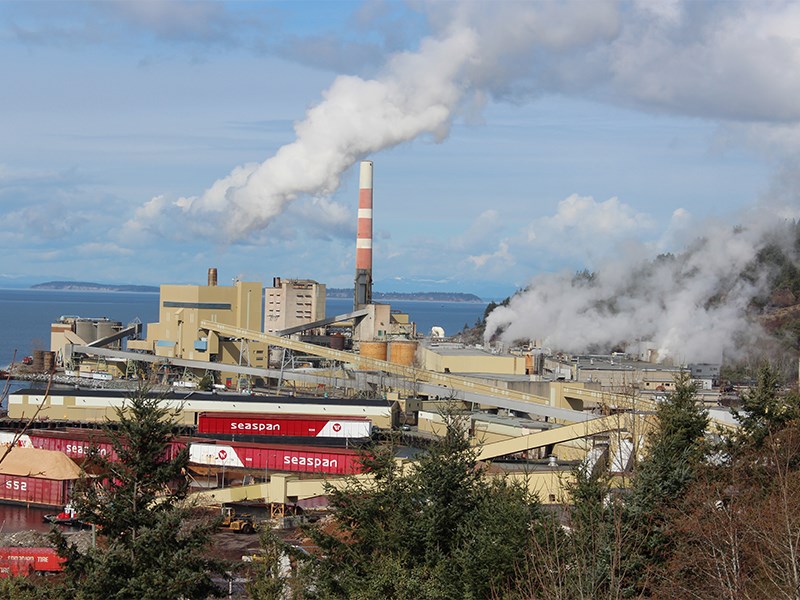Preliminary results in the United States Department of Commerce review of Catalyst Paper Corporation’s export of supercalendared paper, if upheld, indicate a positive impact on the Powell River mill, according to Catalyst senior vice-president of human resources Len Posyniak.
In December 2015, the department levied countervailing duties against Catalyst and other Canadian producers at the rate of 18.85 per cent. Since then, Catalyst has paid more than $18 million in duties and legal costs, imposing a burden on its financial performance, most notably on the Powell River mill.
Posyniak said while the duties have been in place, the company has done as much as it can to offset the effects on the Powell River mill.
“What we’ve done is move the mill to other products to mitigate against the effect of the duty as best we can,” said Posyniak.
He added that almost all of Catalyst’s supercalendared production is out of Powell River “so it’s very significant for the Powell River mill,” he said.
According to City of Powell River mayor Dave Formosa, if duties are lifted it will have a positive impact on the city. With the penalties Catalyst is currently paying, the mill is vulnerable and duties threaten the existence of the city’s largest employer and taxpayer, said Formosa.
“It’s good news because it also means that if Catalyst gets that $18 million back maybe some of that would come into capitalization to help keep us viable into the future with upgrades or capital needs as required,” said Formosa.
He added if the ruling went the other way, the conversation would be around how much longer it would be before Catalyst closed its doors in Powell River.
Formosa said due to the fact that the mill might be able to obtain a surer financial footing if the duties are lifted, he would be very nervous about considering raising its taxes.
“Does this get me excited about if I can put the taxes where they used to be? No,” said Formosa. “Does it excite me that they may live another day to fight? Yes. Other councillors may think differently.”
According to Formosa, if the day came that council decided to look closely at the tax revitalization program for the Powell River mill, he would anticipate Catalyst making an appeal.
Posyniak said the Department of Commerce’s decision preliminarily establishes that Catalyst has not received any material subsidies from the governments of BC or Canada.
“It doesn’t change the fact that we’ll continue to pay that duty until a final decision is made,” said Posyniak. “It is charged against the Powell River mill, so financially it makes it very difficult.”
According to Posyniak, final results of the review could come as early as February 2017.



